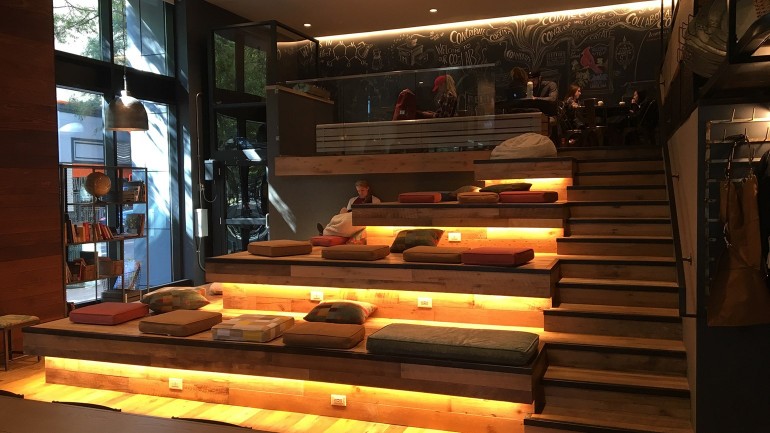Sponsored Listings:
CHARLOTTE, N.C. — Marriott International on Tuesday dedicated its first “laboratory” hotel at the Charlotte Marriott City Center, and outlined how it will use the property to test design and service initiatives for its flagship brand.
Marriott, which dubbed the property its first “M Beta” hotel, is using the hotel to reflect its efforts for the upper-upscale brand to have a more local feel, including having a coffeehouse that features locally sourced coffee and chalk-art from local artists as well as a food-and-beverage program showcasing local chefs and nearby microbreweries.
Guestrooms have what Marriott calls a more “residential” feel, with oval “nesting” tables instead of work desks, hard floor surfaces and no wall art.

The hotel also added a pop-up bar in its former cafeteria area, where the hotel can host private events, serving charcuterie plates with meats and cheeses from North Carolina-based proprietors and Southern-inspired craft cocktails.
Marriott acquired the hotel in 2013 for the purpose of turning it into a laboratory-type property, and spent an additional $36,000 per room on the upgrades, said Mike Dearing, managing director for the Marriott brand. He indicated that Marriott spent about $16 million on the renovation.
“From top to bottom, we’ve reinvented this hotel,” said Marriott International CEO Arne Sorenson. “We’ve managed to touch essentially every square inch of this hotel and try to meet what customers want.”
Marriott has already instituted some of the Charlotte hotel’s improvements at other Marriott properties. The hotel gives guests a chance to offer feedback via so-called “Beta buttons” placed throughout the hotel’s public areas, where guests can note whether they like a particular part of the hotel.
The Marriott brand is looking to shed its “cookie-cutter” image. At the Charlotte hotel, that means amphitheater-style seating at the multi-leveled Coco & the Director coffee bar and “cocktails on tap” at the Stoke bar and restaurant.

The Charlotte hotel also has replaced the front desk with multiple stand-up tables where hosts with tablets check guests in. At the fitness center, guests can take cardio, strength or flexibility classes from a “digital instructor,” which is a bank of nine televisions projecting one of an inventory of 200 workout videos.
“Customers demand authenticity,” Sorenson said. “We want to make sure we respond to that, and to drive the distinction from the other brands.”
Sоurсe: travelweekly.com










